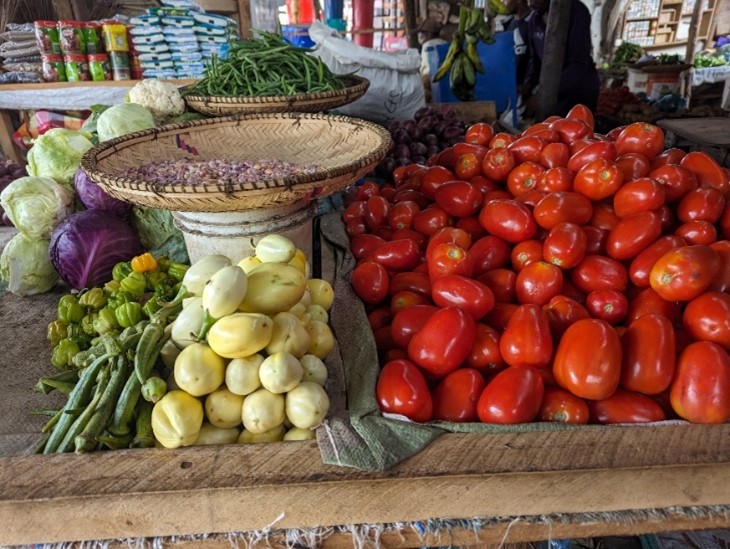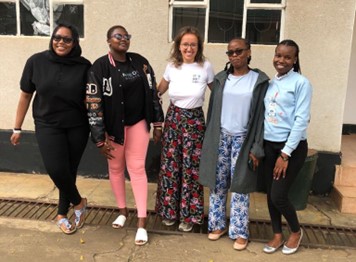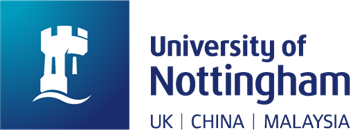The David Miller Travel Bursary Award aims to give early career plant scientists or horticulturists the opportunity of travel in connection with their horticultural careers. Noémie David-Rogeat was awarded one of the 2023 David Miller Travel Bursaries to visit her PhD partners in Tanzania.
'My PhD project focuses on the effects of climate change on the growth and nutrition of the African eggplant (Solanum aethiopicum). The African eggplant is an indigenous African vegetable highly nutritious and grown by small-scale farmers in multiple countries in sub-Saharan Africa. It has recently attracted attention due to its potential under environmental stress and to strengthen food security, leading to more and more research being done on this crop. My PhD aims to understand under which conditions different varieties of the African eggplant can thrive by assessing their responses to drought, heat, and salinity. To complete this project funded by BBSRC, multiple partners based in Africa were involved including the Tanzania Agricultural Research Institute (TARI) and AVRDC – The World Vegetable Center, both based in Tanzania. While these partners conducted their research in field conditions, they shared improved seeds with us alongside knowledge about the African eggplant.
'I am very grateful to the SCI Horticulture group for choosing me as one of the David Miller Awards for 2023. This grant helped me fund the travel cost to Dar Es Salaam and Arusha in Tanzania to visit my PhD partners. After communicating with them primarily virtually, I got the opportunity to travel to Tanzania for 3 weeks to exchange with them in person and gain a better understanding of their research and facilities. In addition, a mapping project of the African eggplant in urban markets in both Dar Es Salaam (a coastal city) and Arusha (an in-land city) was undertaken to understand their distribution and popularity in cities.
'The first visit of the trip was to TARI Mikocheni in Dar Es Salaam. I was warmly welcomed by Violeth Mwaijande who gave me a tour of their facilities and an overview of their main research interests. Due to the coastal location of this research institute, they mostly work with coconut but also on crops that are interesting to be intercropped with coconut, such as the African eggplant. After drawing up a plan of markets to visit with the driver for the week, we set off for our first market. Supermarkets are not as popular as in the UK so most people will get their food from weekly or permanent markets, which was the focus of the mapping study. A range of crops are sold in the markets, on shelves or simply on a mat on the floor. Fresh African eggplant fruits were present in every market visited, highlighting their importance for farmers and consumers.

Display of the African eggplant with other vegetables at a market.
'My visit to Dar Es Salaam aligned with the International Trade Fair 2023, which is where I spent the last day. The fair was impressive with stalls for research institutes, ministry departments, fun rides, and plenty of other sellers. Employees of TARI were presenting their research and work to a range of stakeholders and I got the chance to hear about exciting research being done by the different institutes, from improving oil extraction methods in sunflower and palm to enhancing their wine-making process.
'The second half of my research trip was spent in Arusha, a city in the North and mountainous region of the country – very close to Mt Kilimanjaro. Arusha is a very successful agricultural region due to the numerous rivers passing through it and soil quality. I was welcomed by partners who helped me decide which markets to go to and showed me around. I got introduced to colleagues working in different sectors within their company which opened my eyes to the numerous research opportunities they have around indigenous vegetables. The markets visited resembled the ones seen in Dar Es Salaam, although generally less busy. With the help of colleagues there, I was able to collect samples that I then dried for future nutritional analysis.
'I met incredible people working with passion to enhance farmers' income, resilience and food security. The World Vegetable Center in Arusha is currently expanding to be able to store even more seeds as part of their genebank and conduct more research on-site. Being involved with them at this time was very exciting and I can’t wait for another opportunity to arise! This trip allowed me to have a fresh view of the research we are doing in the UK by introducing me to working in a highly different environment. International collaboration is highly beneficial and leads to the empowerment of all actors involved. Being able to be part of this collaboration was a privilege and I came back from this research trip with ideas for the future and a renewed motivation for my research.'
Last day photograph with some colleagues working at The World Vegetable Center
Noémie David-Rogeat
BBSRC PhD Candidate
University of Nottingham


